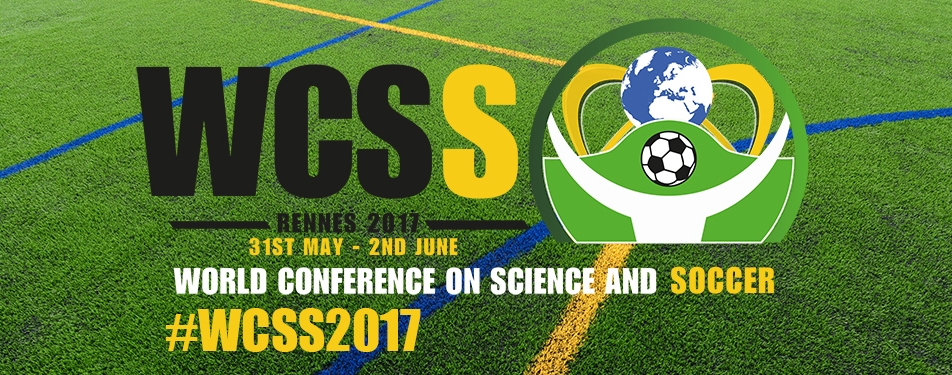RAMPININI E1; DONGHI F1; BOSIO A1; FANCHINI M2,3; CARLOMAGNO D1; MAFFIULETTI N4
1, MAPEI Sport Research Centre, Olgiate Olona, Italy. 2US Sassuolo Calcio, Italy; 3, University of Verona, Italy; 4, Schulthess Clinic, Zurich, Switzerland.

Introduction Morning (AM) priming exercise has been suggested to positively affect afternoon (PM) performance in rugby players (Cook et al., 2014). Repeated sprint running (RSR) was one of the most beneficial strategy to attenuate the PM reduction in testosterone (T) concentrations and to improve lower body explosive actions (~6 h after AM exercise) (Russell et al., 2016). Purpose of this study was to verify the effect of AM exercise on PM muscular and endurance performance in young professional soccer players. MethodsTwelve young players (age 17±1 yrs) from an Italian serie A team participated to a randomized counterbalanced crossover study. They completed 3 conditions during AM on 3 different days separated by 48 h: RSR (6×40 m sprints, 20 s rest), ecological exercise (ECO, 4×10 s fast half squat, 20 s rest followed by 6×5 m speed ladder drills + 20 m sprint, 20 s rest) and a control condition (CON) with no exercise. In each condition, blood T and cortisol (C) concentrations were assessed upon arrival (~08:30 AM) and ~6 h later in PM. Body temperature (BT), maximal voluntary contraction (MVC), voluntary activation (VA), rate of torque development (RTD), twitch contractile properties (TCP), sprint and countermovement jump (CMJ) were evaluated before AM exercise and after blood sampling in PM. Yo-Yo intermittent recovery L2 (YYIR2) performance was evaluated only in PM. Rate of perceived exertion (RPE), self-reported mood, motivation and feeling state were also assessed. Results & Discussion RPE was likely to almost certain different in the 3 conditions (RSR 5.0±1.2, ECO 4.3±0.7, CON 2.9±0.8). Despite a possibly positive effect on T (+11.6%), RSR induced a possibly to very likely negative effect on TCP (-13.0%), CMJ height (-1.4%) and YYIR2 performance (-7.1%) compared to CON. Task-dependent motivation was likely lower for RSR (-28.0%) than for CON. The ECO condition induced a likely lower level of self-reported fatigue (-31.0%) and C (-12.9%), a possible positive effect on RTD (+4.3%) and YYIR2 (+6.5%) compared to CON. No substantial effects were observed for BT, MVC, VA and sprint.Conclusion The present findings confirm that AM RSR might positively influence T. However, this did not translate into a better PM performance as both muscular and endurance performance were reduced in our group of young soccer players. This might be due to an incomplete recovery from AM exercise. A less demanding and well accepted AM exercise like ECO, might be more suitable to optimize PM performance of young soccer players. References Cook, CJ et al., (2014). J Sci Med Sport; 17:317-321; Russell, M et al., (2016). Int J Sports Physiol Perform; 11:763-767.
WORLD CONFERENCE ON SCIENCE & SOCCER (WCSS) Rennes, 31 May- 2 June, 2017